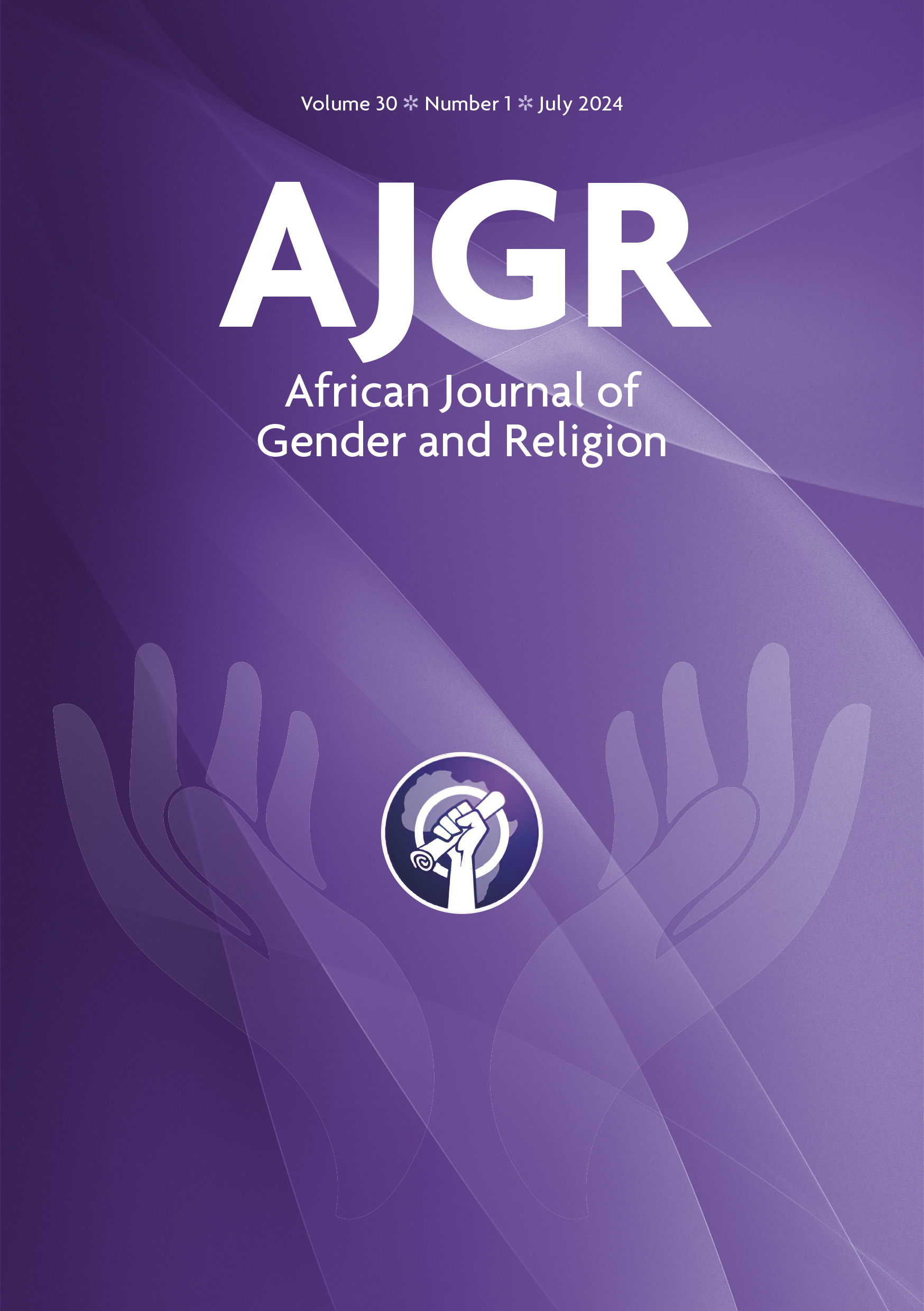Empowered Resistance The Impact of an African Indigenous Faith Tradition on the “Woman Who Was More Than a Man”
Main Article Content
Keywords
ethic of resistance, ethic of control, womanist theological ethics, quare theory, Aline Sitoë Diatta, lived theology
Abstract
Theology plays a role in how we think about human agency for social change. One’s conception of God’s relationship to humanity, or lack thereof, can suppress or empower resistance to oppressive systems. The prophetic revolutionary fighter Aline Sitoë Diatta remains an inspirational symbol of resistance, not only for the Diola people of Senegal but also more broadly throughout West Africa. As “La femme qui était plus qu’un homme”—the woman who was more than a man—her legendary impact on subsequent generations offers the opportunity to investigate the empowering influence of the Diola indigenous faith tradition, awasena path, on moral and ethical formation. Employing the womanist theological ethics of Katie G. Cannon and Delores Williams, along with the quare theory of E. Patrick Johnson, this paper theorizes an ethic of resistance and an ethic of control. The paper will then explore Diatta’s use of both ethics based on an analysis of an African short film, À La Recherche Aline. Diatta’s embodiment of an ethic of resistance and an ethic of control within modern reenactments of her story depict her rebellion against colonialism as empowered by the awasena path and its theology. The film reflects a modern reception history of Diatta that continues to inspire those of African descent to defend against attacks on their personhood by white supremacy.
Article Metrics Graph
Metrics
References
Baum, Robert M. West Africa’s Women of God: Alinesitoué and the Diola Prophetic Tradition. Bloomington: Indiana University Press, 2015.
Bell, Dianna. “Introduction to Roundtable Commentary for West Africa’s Women of God: Alinesitoué and the Diola Prophetic Tradition.” Journal of Africana Religions 6, no. 1 (2018): 123–26.
Cannon, Katie G. Black Womanist Ethics. American Academy of Religion Academy Series 60. Atlanta: Scholars Press, 1988.
———. Katie’s Canon: Womanism and the Soul of the Black Community. New York: Continuum, 1995.
Chidester, David. Empire of Religion : Imperialism and Comparative Religion. Chicago: The University of Chicago Press, 2014.
Deigh, John, ed. “What Is Ethics?” In An Introduction to Ethics, 1–24. Cambridge: Cambridge University Press, 2010. https://doi.org/10.1017/CBO9780511750519.002.
Johnson, E. Patrick, and Mae G. Henderson. Black Queer Studies: A Critical Anthology. Durham: Duke University Press, 2005. https://muse.jhu.edu/pub/4/monograph/book/69514.
Marsh, Charles, Peter Slade, and Sarah Azaransky, eds. Lived Theology: New Perspectives on Method, Style, and Pedagogy. New York: Oxford University Press, 2017.
Sallah, Tijan M. “Jola Verbal Arts of Casamance, Senegal, and the Gambia: A Question in Search of a Literature.” In Routledge Handbook of Minority Discourses in African Literature, 1st ed., 89–102. Routledge, 2020. https://doi.org/10.4324/9780429354229-9.
Snow, Nancy E. Virtue as Social Intelligence: An Empirically Grounded Theory. New York: Routledge, 2010.
Tran, Jonathan. Asian Americans and the Spirit of Racial Capitalism. Oxford: Oxford University Press, 2021.
Welch, Sharon D. A Feminist Ethic of Risk. Rev. ed. Minneapolis: Fortress Press, 2000.
Williams, Delores S. Sisters in the Wilderness: The Challenge of Womanist God-Talk. Maryknoll: Orbis Books, 1993.


